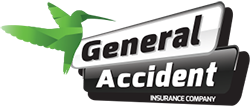GLOSSARY OF TERMS
GLOSSARY OF TERMSInsurance is plagued with an exasperating jungle of confusing terminology. It is hoped that the brief list of insurance terms provided below will assist the reader to improve his understanding and communication on at least some insurance matters.
ACT OF GOD
An accident or event that is the result of natural causes, without any human intervention, that could not have been prevented by any reasonable foresight or car
ACCESSORIES
Parts or products specifically designed to be fitted to your car. The accessories are treated separately to your vehicle in the event of a claim, so if you have installed non-standard accessories, such as sound systems or rims, please keep proof of purchase and make sure that the value of your accessories is adequately covered in your sum Insured.
ADJUSTER
An insurance adjuster, also known as a claims adjuster, determines how much your insurance company should pay you if you make a claim. Insurance claim adjusters can either be in-house reps or independent people hired by your insurer, your broker and sometimes your agent.
ADJUSTMENT
The process of determining the cause, the extent of loss and amount of indemnity the Insured should recover under his policy
AGENT
A person or firm who represents the Insurer in negotiating, servicing, or effecting insurance contracts.
AVERAGE
Average is a term used when calculating the payment of a claim if the sum Insured at the time of a loss or damage is less than the actual value of the Insured property. The Insured is regarded as his own Insurer for the difference between the two amounts. Pay out of a claim will be in proportion to the value Insured.
BROKERS
A professional person or firm who solicits insurance and places orders for coverage with insurance companies designated by the Insured or with companies or their own choosing
CANCELLATION
Termination of the insurance cover prior to the normal expiry date of the policy
CLAIM
A demand for payment under an insurance contract. The estimated or actual amount of loss caused by an Insured event.
CLAIMANT
One who makes or presents a claim for a loss suffered
COVERNOTE
A document giving a written statement of temporary cover usually pending the issuance of the policy document
DEPRECIATION
The loss of value of the car with time. As each part of the vehicle wears out with time, the value of your car also diminishes. When there is a claim and parts need to be replaced, a deduction needs to be made for this wear and tear before the Insurer can pay to have the part replaced. If there is a total loss (write off), a deduction will also be made before settlement based on the recommendation of an Independent Loss Adjuster.
ENDORSEMENT
A variation of the terms of the policy, usually occurring between policy periods.
EXCESS
Excess- the amount that you must pay towards every claim (whether right or wrong) before it is settled. Excesses are calculated as a percentage of your vehicle’s sum Insured or market value, whichever is the lesser value, so the higher the sum Insured or market value, the higher the dollar value of the excess you must pay.
INSURER
A company authorized to transact and accept risks.
LAPSE
The expiration or termination of an insurance policy at its renewal date, which can be at the request of the Insured, or even sometimes the Insurer
INDEMNITY VALUE
The contract that you hold with your insurance company is based on the principle of indemnity. The indemnity value is the value of the property (vehicle or otherwise) based on the cost of repairing or replacing it with property of the same kind and quality. Typically, indemnity equals the current replacement cost minus depreciation (age, condition, length of time in use, and obsolescence)
PERIL
A condition that gives rise to a loss, for which a claim will be filed, e.g. a fire, theft, earthquake, hurricane.
POLICY
An insurance policy is a contract between the Insurer and the Insured, which determines the claims which the Insurer is legally required to pay. It comprises of your policy booklet, schedule, motor proposal confirmation and certificate of motor insurance.
POLICY HOLDER
The individual or firm Insured
PREMIUM
The amount of money the policyholder agrees to pay to the insurance company for their acceptance of his risk.
SUM INSURED
This figure should represent the current market value of your vehicle. We recommend that an annual valuation be done on your vehicle to ensure our system reflects the accurate value of your vehicle. In the event of a total loss, settlement reflects the current market value of your vehicle, or the system SI, whichever is the lesser value.
UTMOST GOOD FAITH
This is a term used to indicate that every person who enters a contract with an insurance company has a legal obligation to be honest and accurate in the information provided on proposal forms, and other forms.


